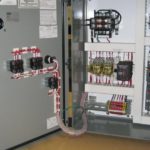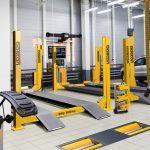Automotive Service Advisor Careers

The Canadian Automotive Industry will look for 92,159 new employees in 2014, with 94% of these full-time job positions. Clearly, now is the right time to enter the automotive industry and the right time to train a career as an Automotive Service Advisor. If you have a passion for cars and enjoy working with people, there are many diploma programs available that will help you focus your customer service skills and give you the skills you need for an exciting career in the fast moving and dynamic automotive industry.
By graduating from a leading automotive service advisory training program, you will open the door to many opportunities in the global Automotive Industry. Most people don’t know the type of customer service and customer service position available in this tough industry. These positions include:
- Automobile Service Writer
- Wholesale Retail Parts Representative
- Tower Operator
- Retail Parts Clerk
- Warranty Administrator
- Appointment Coordinator
- And








